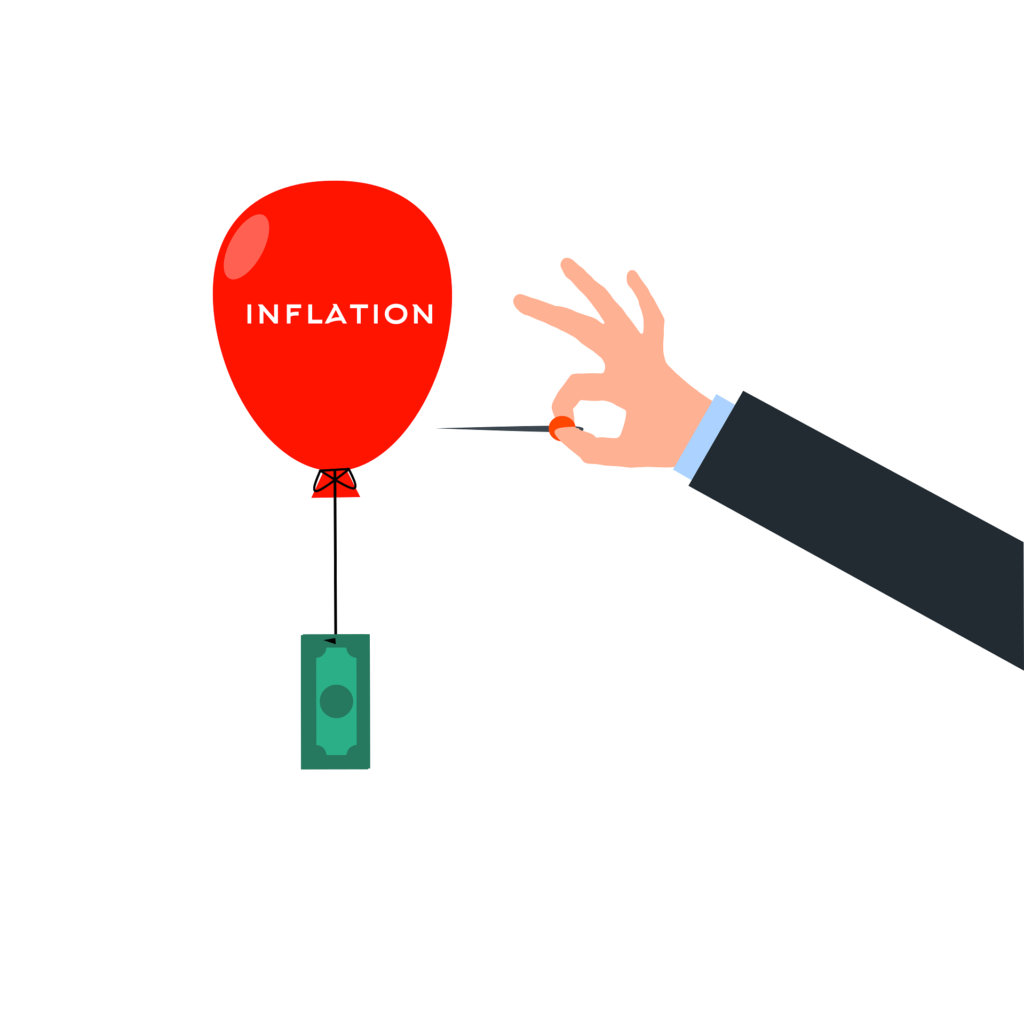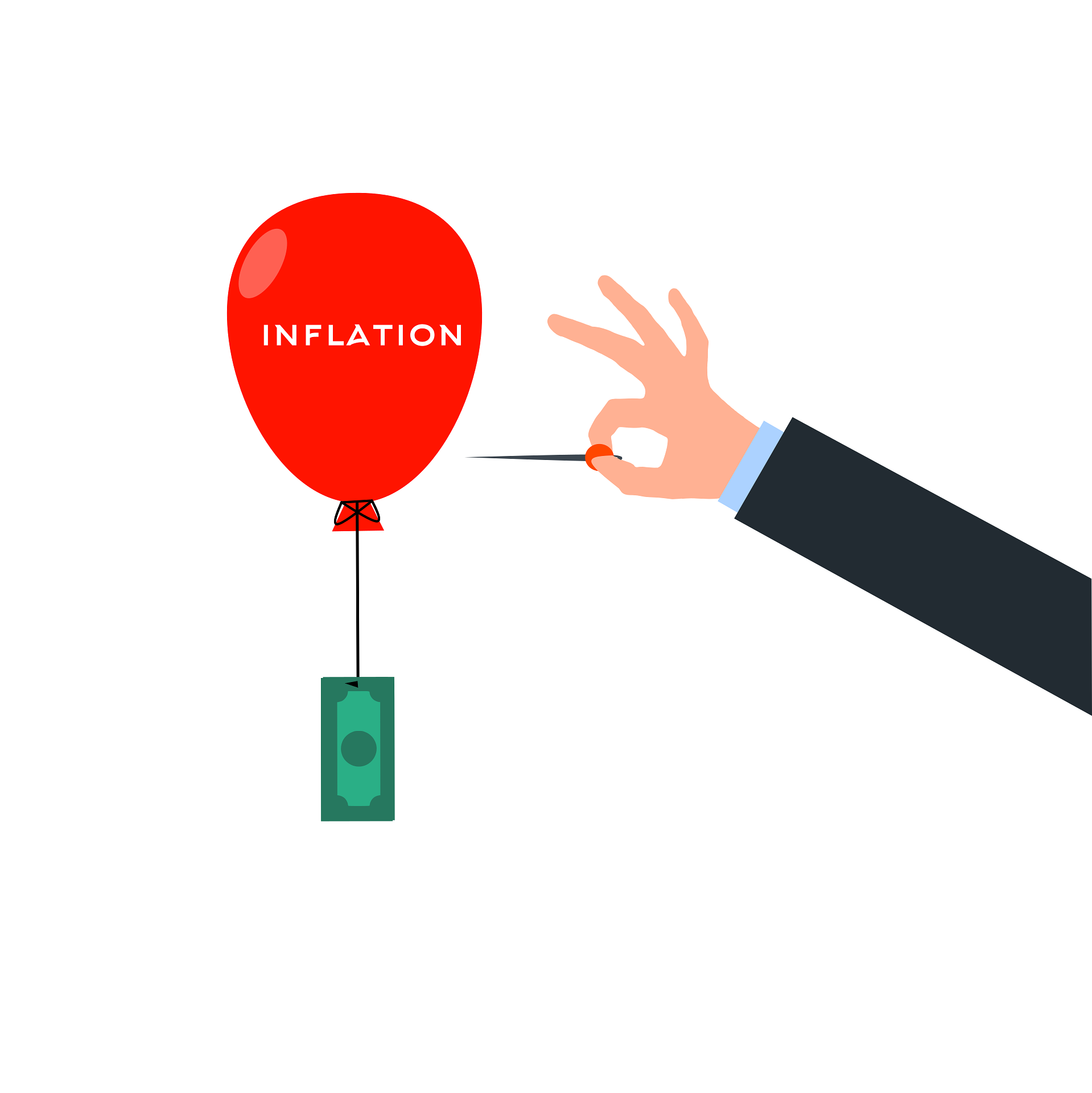
Inflation and Economic Uncertainty: A Comprehensive Analysis
Inflation and economic uncertainty are two interrelated forces that shape the global financial landscape. In 2025, nations across the world continue to struggle with rising prices, supply chain disruptions, and policy shifts, leading to economic instability. For individuals, businesses, and governments alike, understanding inflation and how to navigate economic uncertainty is crucial for financial planning and growth.
This article provides an in-depth analysis of inflation, its causes, effects, and solutions, as well as strategies to mitigate economic uncertainty. We will also answer frequently asked questions to provide clarity on how inflation impacts daily life and investment decisions.
Inflation and Economic Uncertainty: A Comprehensive Analysis
1. Understanding Inflation
Inflation refers to the rise in the general price level of goods and services over time. It reduces purchasing power, making goods and services more expensive. The primary metric used to measure inflation is the Consumer Price Index (CPI), which tracks changes in the prices of essential goods and services.
1.1 Types of Inflation
✔ Demand-Pull Inflation – Occurs when demand for goods and services exceeds supply. ✔ Cost-Push Inflation – Arises when production costs (labor, raw materials) increase, causing businesses to raise prices. ✔ Built-In Inflation – Happens when businesses and workers expect future inflation and adjust wages and prices accordingly. ✔ Hyperinflation – Extreme inflation, often above 50% per month, leading to economic collapse. ✔ Stagflation – A situation where inflation is high, but economic growth is stagnant, causing high unemployment rates.
1.2 Causes of Inflation
✔ Excessive Money Supply – When central banks print too much money, reducing its value. ✔ Supply Chain Disruptions – Events like wars, pandemics, or natural disasters can impact supply. ✔ Government Policies – High fiscal spending and excessive debt can lead to inflationary pressures. ✔ Global Economic Shocks – Crises such as oil price surges or currency devaluation. ✔ Rising Wages – When wages increase, businesses may pass costs onto consumers.
Inflation and Economic Uncertainty: A Comprehensive Analysis
2. Economic Uncertainty: What Causes It?
Economic uncertainty refers to unpredictability in the economic environment, making it difficult for businesses and individuals to plan financial activities.
Inflation and Economic Uncertainty: A Comprehensive Analysis
2.1 Factors Contributing to Economic Uncertainty
✔ Geopolitical Tensions – Conflicts between countries can impact global trade and markets. ✔ Market Volatility – Stock market fluctuations create unpredictability. ✔ Changing Interest Rates – When central banks adjust interest rates to control inflation, it affects borrowing and investments. ✔ Regulatory Changes – New policies and taxation reforms can impact businesses and investments. ✔ Technological Disruptions – Automation and AI can replace jobs, leading to uncertainty in employment markets.
Inflation and Economic Uncertainty: A Comprehensive Analysis
3. Effects of Inflation and Economic Uncertainty
3.1 Impact on Individuals
✔ Reduced Purchasing Power – Essentials like food, fuel, and rent become more expensive. ✔ Lower Savings Value – Inflation erodes the real value of savings over time. ✔ Job Insecurity – Companies may downsize due to rising operational costs. ✔ High Borrowing Costs – Rising interest rates make loans and mortgages more expensive.
Inflation and Economic Uncertainty: A Comprehensive Analysis
3.2 Impact on Businesses
✔ Increased Production Costs – Businesses struggle with higher wages and raw material prices. ✔ Lower Consumer Spending – Reduced demand for non-essential goods and services. ✔ Supply Chain Disruptions – Global shortages lead to price volatility. ✔ Investment Uncertainty – Businesses hesitate to expand due to financial instability.
Inflation and Economic Uncertainty: A Comprehensive Analysis
3.3 Impact on Governments
✔ High National Debt – Inflation increases government borrowing costs. ✔ Challenges in Policy Implementation – Striking a balance between growth and stability. ✔ Social and Political Unrest – Economic uncertainty can lead to protests and instability.
Inflation and Economic Uncertainty: A Comprehensive Analysis
4. How to Protect Yourself from Inflation and Economic Uncertainty
4.1 Investment Strategies
✔ Diversification – Spread investments across stocks, real estate, commodities, and bonds. ✔ Gold and Precious Metals – Historically considered a hedge against inflation. ✔ Investing in Inflation-Resistant Assets – Sectors like healthcare and utilities perform well during inflation. ✔ Real Estate – Property investments can generate passive income and appreciate in value. ✔ Stocks of Strong Companies – Investing in large-cap companies with pricing power. ✔ Cryptocurrency – Some investors view Bitcoin as digital gold, though it remains volatile.
4.2 Financial Planning Tips
✔ Build an Emergency Fund – Have at least 6–12 months of expenses saved. ✔ Avoid Excessive Debt – Rising interest rates can make debt unaffordable. ✔ Increase Income Streams – Side businesses or freelancing can create additional income. ✔ Invest in Skills Development – Staying employable in a changing job market. ✔ Review and Adjust Budgets – Cut non-essential expenses during inflationary periods.
Inflation and Economic Uncertainty: A Comprehensive Analysis
5. Government Policies to Tackle Inflation
✔ Monetary Policy – Central banks control interest rates to manage inflation. ✔ Fiscal Policy – Governments adjust spending and taxation to stabilize the economy. ✔ Price Controls – Some governments impose limits on essential goods to prevent excessive price increases. ✔ Supply Chain Improvements – Encouraging domestic production to reduce reliance on imports. ✔ Subsidies and Relief Packages – Direct financial support to low-income households.
Inflation and Economic Uncertainty: A Comprehensive Analysis
FAQs on Inflation and Economic Uncertainty
1. How does inflation affect savings?
Inflation erodes the purchasing power of savings over time. To counter this, investing in high-yield instruments like stocks, real estate, or inflation-linked bonds is advisable.
2. How can businesses manage inflation?
Businesses can hedge against inflation by adjusting pricing strategies, reducing operational costs, and diversifying supply chains.
3. Is real estate a good hedge against inflation?
Yes, real estate values generally increase over time, making it a strong inflation-resistant asset.
4. What role does the central bank play in controlling inflation?
Central banks adjust interest rates and regulate money supply to manage inflationary pressures.
5. Should I invest in cryptocurrencies to hedge against inflation?
Cryptocurrencies like Bitcoin are often considered digital gold, but they come with high volatility. Only invest what you can afford to lose.
6. How can I prepare for economic uncertainty?
By diversifying income sources, reducing debt, saving for emergencies, and making strategic investments in stable assets.
Inflation and Economic Uncertainty: A Comprehensive Analysis
Conclusion
Inflation and economic uncertainty are inevitable aspects of any economy. While inflation reduces purchasing power, economic instability creates unpredictability in investments and employment. By understanding the root causes, effects, and potential solutions, individuals, businesses, and governments can take proactive measures to minimize financial risks.
To thrive in times of economic uncertainty, it is essential to stay informed, diversify investments, and adopt a strategic financial approach. With proper planning and risk management, financial stability and growth are still achievable even in challenging economic environments.

Leave a Reply